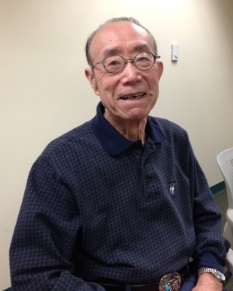 Dr. Kazuo Nihira knows about research. When he came to Los Angeles from Japan half a century ago, it was to do graduate research work at Guilford Psychometric Laboratory at USC. After a stint as a researcher at the University of Kansas, where the weather inspired him to stay indoors and concentrate on his work, he took a position at UCLA, where he continued his research in developmental disabilities, teaching and advising graduate students until he retired about 10 years ago.
Dr. Kazuo Nihira knows about research. When he came to Los Angeles from Japan half a century ago, it was to do graduate research work at Guilford Psychometric Laboratory at USC. After a stint as a researcher at the University of Kansas, where the weather inspired him to stay indoors and concentrate on his work, he took a position at UCLA, where he continued his research in developmental disabilities, teaching and advising graduate students until he retired about 10 years ago.
So when Nihira talks about the research reports he gets at Macular Degeneration Partnership (MDP) support-group meetings, he knows about what he speaks.
I attend the support groups mostly for the presentations by Judi Delgado, MDP’s previous executive director, he says. They are superb. Particularly after she goes to conventions and research meetings. She gives us reports, which are not only the most useful information, but the details and written summaries she gives us from the presentations are also superb. Coming to the support group and listening to Judi’s report is better than going to the meeting myself.
Nihira has been attending the monthly support group in Beverly Hills for about three years. He was diagnosed with AMD a decade ago and underwent what was a new treatment at the time, called photodynamic therapy or PDT, during which a light-sensitive material was injected into his system, then his retina was exposed to a cold laser light. It didn’t work very well, Nihira says. It might have prevented some progression, but I never felt any real improvement.
When I was diagnosed with the condition, I wasn’t having any problems, but that changed when my dry AMD switched to wet AMD about five years ago. I started having problems in both eyes, and corrective glasses did not help, he says. He began monthly Lucentis injections, which have been helpful, though his eyesight continues to deteriorate, and he now has wet AMD in both eyes.
Nihira misses being able to read and has given up driving. He carries a magnifier but finds shopping to be a challenge. When you reach a certain degree of AMD, you have a problem finding things. When you go to the store, where is the thing you are looking for? They move things every time, and labeling changes, so it’s hard to find things, he says.
As a psychologist, Nihira knows how important it is to seek help when you need it. He uses travel as an illustration: At the airport, you need to look at signs. For example, where is the boarding area? If you ask people, they are very helpful. The key is to ask for help. It’s a mistake to hesitate. Just ask, and people will help you.

